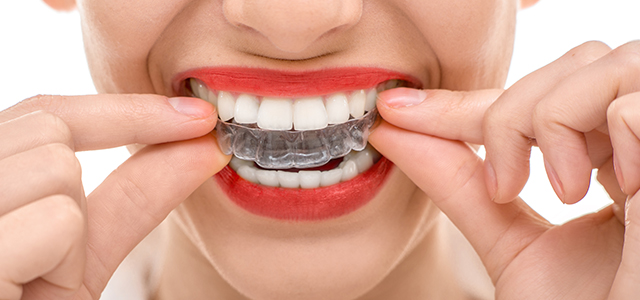Preventive dentistry is a very effective method to keep a healthy mouth. The most important problems that generate the tooth loss are decay and gum disease. That’s why it is necessary to prevent these problems.
Dental prophylaxis consists in cleaning procedures performed to clean the teeth and it is essential in preventing the progression of periodontal disease and gingivitis.
These kind of problems occur when bacteria from plaque colonize on the gingival tissue, above or below the gum line. This can come with serious inflammation and irritation and the effect is a chronic inflammatory response in the body. The body starts to destroy gum and bone tissue and the teeth become unstable and, in the end, they fall out. The pockets between the gum and teeth become deeper and the bacteria spread in the entire body via the bloodstream and infect other parts of the body causing different diseases.
Regular examinations
When you visit a good dentist, such as Steven J. Vorholt DDS, during an examination, the dentist check your teeth and gums and discuss with you about any treatment you need in order to prevent decay or gum disease. If these problems are already installed, the dentist will propose you some methods to treat them.
How to prevent dental disorders
The best way is to prevent a disease, so take a look at the actions you should take in order to prevent dental diseases:
- Brush the teeth properly;
- Clean the teeth using interdental brushes or floss;
- Use a mouthwash, because it contains antibacterial ingredients;
- Remove bacterial plaque that forms constantly on teeth;
- Cut down or avoid eating or drinking food that contains sugar because the bacteria in the plaque turn the sugar into acid that causes decay or gum inflammation;
- Find out which oral care products are the best for preventing gum disease and decay;
- Find out tricks about the diet you should adopt. Eat cheese, fruit, nuts and vegetables because they can help prevent gum disease;
- Do not smoke and drink alcohol in order to prevent tooth staining and its complications;
- Check the fillings;
- Treat the teeth in order to strengthen them and to prevent the break;
- Use fluoride for preventing decay teeth;
- Apply sealants on the biting surfaces in order to make them smoother and easier to clean;
- Dental erosion consists in the loss of the enamel caused by acid attack and it leads to pain and sensitivity. Food and drinks that contain acid such as citrus fruits, fizzy drinks, fruit juices and teas can cause dental erosion. Try to reduce their consumption;
- Use a straw while drinking fizzy drinks. This helps the drink to go to the back of your mouth and reduces the acid attack on the teeth;
- Do not brush the teeth for at least one hour after eating or drinking because the enamel on your teeth becomes softer for a short period and loses a part of its mineral content;
- Brush the teeth at night and one other time during the day with fluoride toothpaste;
- Chew sugar free gum. It makes the mouth produce more saliva and stops your mouth drying out and reduce plaque and prevent dental decay or erosion;
- Use electric toothbrushes with oscillating and rotating actions as they are better at removing plaque.
Benefits of the prophylaxis
Periodically, you should go to dentist for a professional dental cleaning. Prophylaxis keeps the oral cavity in good health and stops the progression of gum disease.
Tartar removal
Tartar or calculus and plaque buildup both above and below the gum line and can affect seriously periodontal problems. The first steps to prevent the tartar is to use a very good brush and floss homecare techniques. But, if the tartar has already become visible it is almost impossible to remove debris, bacteria and deposits from gum pockets. It is necessary to go to the dentist for a specialized examination and for tartar removal.
Aesthetics
Yellow and stained teeth are very unaesthetic. Such a problem destroys the self-confidence. That’s why proper cleaning of the teeth has a great impact on somebody’s mood and smile.
Fresher breath
Periodontal disease is often associated with persistent bad breath or halitosis. A bad breath is usually caused by a combination of rotting food particles below the gum line or gangrene resulted from gum infection and periodontal problems. The removal of plaque, calculus and bacteria improves breath and diminish the irritation.
Health issues
There are some health problems that the dentist can identify during the examination such as oral cancer, periodontitis or different signs of diabetes or kidney problems.
Prophylaxis treatment
Prophylaxis can be performed in the course of a regular dental visit or under general anesthetic if the problem is more serious.
Stages of prophylaxis:
- Supragingival cleaning
The dentist clean the area above the gum line with scaling tools to rid them of plaque and calculus.
- Subgingival cleaning
It is the most important step because the calculus is removed from the gum pockets and beneath the gum line.
- Root planing
This is the smoothing of the tooth root in order to eliminate any remaining bacteria. These bacteria are extremely dangerous to patients with periodontitis, so eliminating them is crucial.
- Medication
After performing the scaling and root planing, the dentist usually place an antibiotic or antimicrobial cream in the gum pockets. These creams help ease discomfort and accelerate the healing process.
- X-ray and examination
Routine X-rays can be extremely helpful in monitoring periodontal disease. X-rays show the extent of bone and gum recession, and also aid the dentist in identifying areas which may need future treatment.
It is recommended that the patients go to the dentist twice per year in order to prevent complications or diseases. Periodontitis patients should visit the dentist every 3-4 months for dental cleaning.


